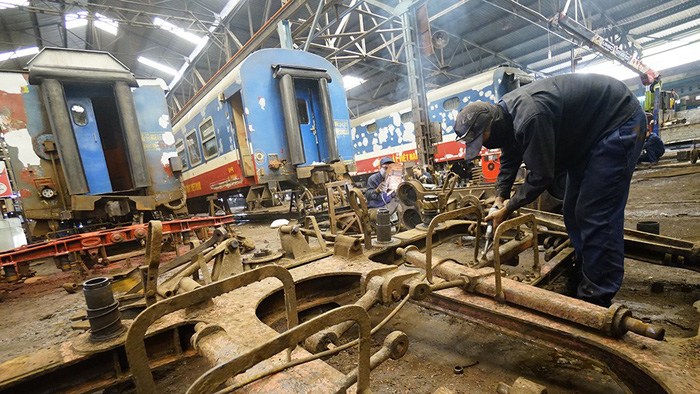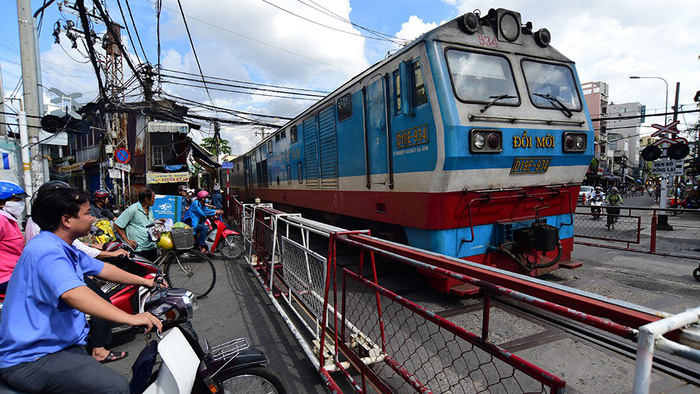Vietnam’s railway sector is lagging due to obsolete trains and infrastructure as well as ineffective investment, according to experts.
A regulation on the railway law, set to come into effect on July 1, caps the maximumlifespan for passenger cars and freight cars at 40 years and 45 years, respectively.
The new policy would also mandate that outdated cars be removed from the railways system by 2021.
A recent survey showed that out of more than 1,000 passenger train cars and nearly 5,000 freight carriages in the country, about 25.6 percent are over 40 years old and some 33.4 percent are between 30 and 40 years old.
About 43.8 percent out of 294 locomotives are also between 30 and 40 years old, while the majority of them have low engine capacity, low speed, and consume too much fuel.
A representative from the Vietnamese railway sector said that over VND4 trillion (US$176 million) will be needed to replace the obsolete locomotives and cars during the 2016-20 period.
Only about VND1.44 trillion ($61.6 million), funded by two major subsidiaries of The Vietnam Railways (VNR), has so far been invested in the replacement of 135 cars.
VNR currently manages Vietnam’s over 3,000 kilometer north-to-south railway network.
The firm previously intended to channel another VND2.1 trillion ($92.4 million) into building 100 new locomotives, but the plan is still in its initial phases.
 |
| Old train cars are being upgraded at a factory in Ho Chi Minh City. Photo: Tuoi Tre |
The railway sector has also carried out many unsuccessful investments in the past, resulting in wastefulness to the already limited financial capacity, according to an official in the field.
In 2014, VNR managed to mobilize approximately VND188 billion ($8.27 million) in investments for new lavatory equipment onboard 821 passenger cars.
However, the new facilities quickly posed a series of problems, resulting in endless complaints from travelers and eventually forcing the firm to replace all of the new equipment.
The railroad sector previously planned to add meals to its train journeys and purchased equipment to process and preserve food.
They also provided free meals to passengers as part of a pilot program but did not receive positive feedback from the travelers. The plan was eventually ceased after many passengers refused to eat the free meals.
In addition, the automatic ticket gates installed at major stations in Ho Chi Minh City, Hanoi, and the central city of Da Nang in late 2017 have malfunctioned on multiple occasions, resulting in difficulties for railway attendants.
The Ministry of Transport recently submitted a proposal to the law-making National Assembly regarding the provision of VND7 trillion ($308 million) to invest in the development of the country’s railway sector.
Like us on Facebook or follow us on Twitter to get the latest news about Vietnam!
























































